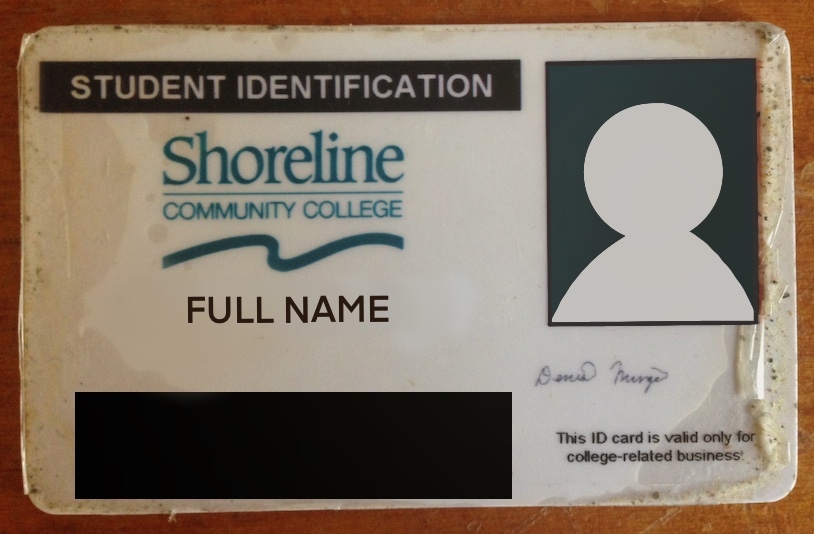In the old days, Shoreline Community College would issue identification cards to new students. Those newcomers would pick up the ID cards at the Ray Howard Library.
“Because of COVID, the college has more or less shut down the system,” said Brien Dickey, who works for the Library and Media Department.
Now, much of the student services are accessed through the college’s ctcLink program. Many students didn’t even realize that the college had at one time issued ID cards.
“No, I didn’t know there’s a physical card before,” said Kathleen Dai, a Taiwanese student who has been studying at SCC for one year.
Physical ID cards offer more benefits than just access to student services. And now the college is planning to bring back the ID cards. A new ID card system has been purchased, and it will be managed by Enrollment Services, said Derek Levy, dean of Student Support and Success.
He said the college purchased a system to provide the cards, but the implementation was delayed after last year’s ransomware incident.
“We plan to offer student IDs again through Enrollment Service on the second floor of the FOSS building,” Levy said. “Our goal is to relaunch ID production within a few weeks.”
Physical ID cards are especially important for international students, said Nanami Yoshida, a biology student from Japan.
“Especially for the students who are new here and haven’t (received) their WA ID card, they need to bring their passports around which is kind of dangerous, because they may lose it or it may be stolen,” Yoshida said.
Dayla Un, a Cambodian student who has been at SCC for a year and a half, agreed.
“As an international student I do really wanna have a student ID card because I [don’t want] to carry my passport everywhere (since it is a very important document). Having an ID card would be like an identification for me too as an international student so in case I get into an accident or anything,” Un said.
Student ID cards offer several other benefits to students. Those include:
College student discounts at some retail stores, restaurants and entertainment, etc.
Event access in which student IDs may easily grant access to campus events, such as sporting events, concerts, or theater productions.
Healthcare services where in some cases, student IDs can be linked to medical services or records and insurance companies making it easier when students go to the hospital.
Last but not least, transportation, student IDs may serve as transit cards for using public transportation systems in the area at a discount price or no charge.
While a physical card would be useful for students, Yoshida had one other suggestion: “They should have a digital ID card that can [be] downloaded into students’ phones or laptops at least, so […]students could feel more convenient.”














